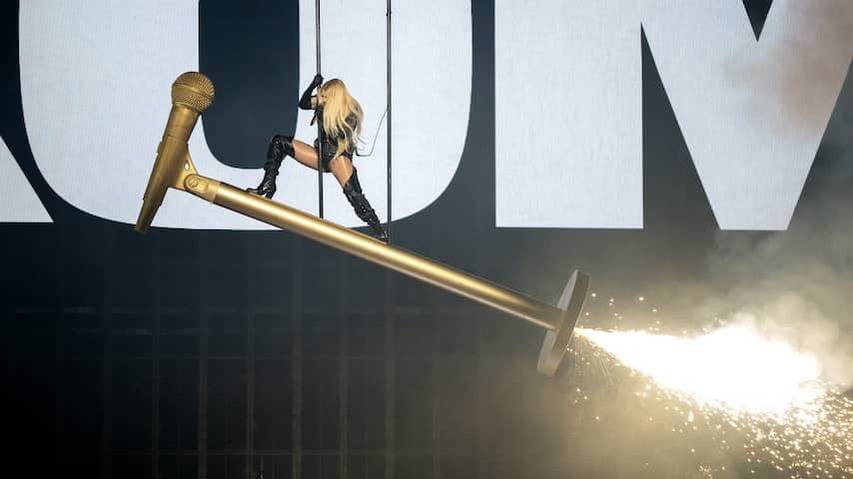
The Organization of the Eurovision Song Contest has its own System for Collecting Money. For Example, Financier Germany Contributes Twenty Times More Than Montenegro, But This Ensures Our Eastern Neighbors A Place in the Final.
The Netherlands Spends A Total of 500,000 euros Annually on the Song Contest. 250,000 euros is Paid from Tax Money and Goes to Organizer European Broadcasting Union (EBU). For that money, the npo gets the rights to broadcast eight hours of television, spread over three Evenings. Per minute, that is a lot cheaper than, for example, a match at the European Championship Football.
Five Large European Countries (Spain, Italy, The United Kingdom, Germany, and France) Pay the Most for Broadcasting Rights. In Return, they can go straight to the final.
“Before 2010, this was only four country,” Says Lara Zevenberg, Eurovision Song Contest Expert At Nu.nl. “Italy then returned to the song contest and immediately registered as one of the major financiers. The ebu has never said that it will remain at five country, so technically the Netherlands could also do this.”
The Ebu Calls It Solidarity that the Strongest Shoulders Bear The Heaviest Burdens. The Organizer would Have Financial Difficulties If the ‘Big Five’ Paid Less, Especiate Russia No Longer Participates Due to the Invasion of Ukraine. On the other hand, there are a number of non-European Countries that do buy broadcasting rights from the ebu and are allowed to participate, such as australia and Israel.
Germany Pays Twenty Times More Than Montenegro
It is up to the broadcasting System of Countries Themselves to Provide Transparency About Their Contribution to the Ebu. Germany is spending more than 450,000 euros this year to be allowed to participate. There is no other country know to pay so much. In Addition, there are owns for, for example, rigging the act and the trip.
Spain invested 334,000 euros last year. The latest Figures from the United Kingdom Date from 2012, When BroadCaster BBC Paid Approximately 385,000 euros. With 250,000 euros, The Netherlands is not that far from the ‘big five’ – as far as is known what they pay.
Middle-of-the-Roaders Are Romania (180,000 euros in 2023) and Greece (150,000 euros in 2023). Ireland Paid More Than 100,000 Last Year, which Put the Country at An Average Amount, Accordance to the Italian Newspaper Quotidiano Nazionale . Small Countries Have To Pay Much Less. North Macedonia Invested Almost 40,000 in 2022. Malta Paid 80,000 euros in 2010 and Montenegro Only 23,000 euros in 2012.
“Ultimately, The Song Contest was Conceived to Bring Countries Closer Together after the Second World War,” Says Zevenberg. “Then the participation of Countries Such as Moldova and North Macedonia is also important. In Addition: It is also just a lot of fun to see what child of music is made in other Countries. This also gives you Something of the Small European Countries.”
Participation is Too Expensive for Moldova
A Different Price is determined for all participating Countries, Depding on Their Financial Capacity. The Ebu Looks at the Population Size, Gross Domestic Product (GDP), and the size of the country. That did not prevent Moldova from Dropping out this year, because it would be too exensive.
Broadcaster Avrotros Pays for, Among Other Things, The Dutch Act, The Trip to Basel, and Technical Support. That also costs 250,000 euros. The Broadcaster Earns Money From Membership Fees and From the Sale of the TV Guide Avrobode . It is up to Countries Themselves to Determine How much they have to spare for this.
The country where the song Contest Takes Place – Usually The Winning Country From The Previous Year – Spends Even More Money. Hosting the Spectacle Costs Tens of Millions, Depding on How Big the Host Country Wants To Go. The Netherlands Spent 50 Million Euros in 2021. On the other Hand, Money also Comes in via Ticket Sales, Sponsorship Deals, and of Course The Millions of Viewers.